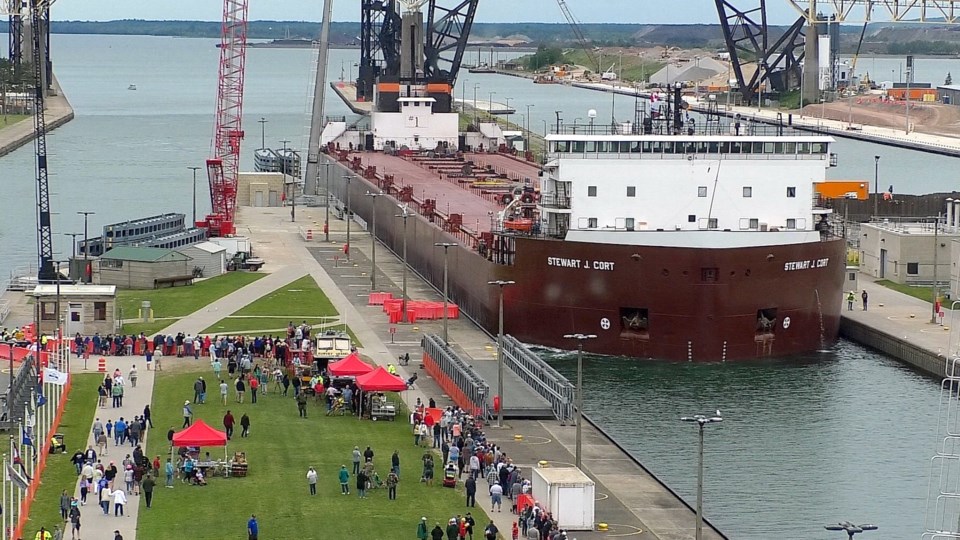WASHINGTON, D.C. – U.S. Senators Gary Peters (MI) and Debbie Stabenow (MI) say they have secured the US$450 million in federal funding included in the Fiscal Year 2025 Energy and Water Development and Related Agencies Appropriations Act for the Soo Locks construction project.
In a news release, Peters and Stabenow say they pushed for more than $264 million for the project in the U.S. Army Corps of Engineers’ budget. Peters and Stabenow then additionally secured more than $186 million in congressionally directed spending for the completion of the project.
Once passed into law, the funding secured in this bill should allow the Army Corps to award all remaining construction contracts for the Soo Locks project, putting the project on a glidepath towards timely completion, according to the release.
As a member of the Senate Appropriations Committee, Peters voted to advance the bill to the full Senate.
“The Soo Locks are critical not only to Michigan but to our entire country. Even a temporary shutdown of just one lock would have catastrophic impacts on U.S. jobs, supply chains, and national security,” said Senator Peters. “Building this new lock is necessary to protecting this vital gateway for transporting goods throughout the Great Lakes and beyond, and I was proud to secure the funding needed that will finally see this project across the finish line.”
“In Michigan, we know how vital the Soo Locks are. We are on borrowed time until something happens that shuts them down, which would have devastating consequences for the economy and our national security,” said Senator Stabenow. “That’s why I’ve been fighting in the Senate for over 15 years to ensure the Army Corps has the resources and flexibility they need to build a new lock. This funding is a crucial step in keeping this project on track and finally finishing a second Poe-sized lock.”
The new lock system will be the same size as the existing 55-year-old Poe Lock, the only lock capable of handling the largest vessels that travel through the Great Lakes.
The Soo Locks allow ships carrying essential cargo – such as iron ore pellets used to make steel for autos and appliances – to travel between Lake Superior ports and those in the lower Great Lakes. Reports have indicated that if the Poe Lock were to suffer a long closure for any reason, it could lead to a national recession.
The senators' release states that in 2007, Stabenow authored language in the Water Resources Development Act making construction of the new lock 100 percent federally funded, eliminating the need for Michigan to foot the bill. In 2015, Stabenow requested a study and a report that led the Army Corps of Engineers to prioritize the Soo Locks project. In 2017, Stabenow led a bipartisan Congressional delegation on a tour of the Soo Locks, highlighting the importance of the Locks to our state’s and nation’s economy and national security and the urgent need for modernization.
In 2018, Stabenow’s Soo Locks Modernization Act, which Peters cosponsored, was signed into law as part of the America’s Water Infrastructure Act of 2018, authorizing Congress to provide the necessary funding to build another Poe-sized lock.
Peters and Stabenow were instrumental in enacting the Bipartisan Infrastructure Law, including $479 million they announced in January 2022 for modernizing the Soo Locks.
In December 2022, they helped pass the bipartisan Water Resources and Development Act as part of the annual national defense bill and it included needed funding flexibility for the U.S. Army Corps of Engineers to keep building a new lock at the Soo on schedule.
Peters and Stabenow additionally secured a $257.4 million federal investment to support ongoing construction of the new lock.
